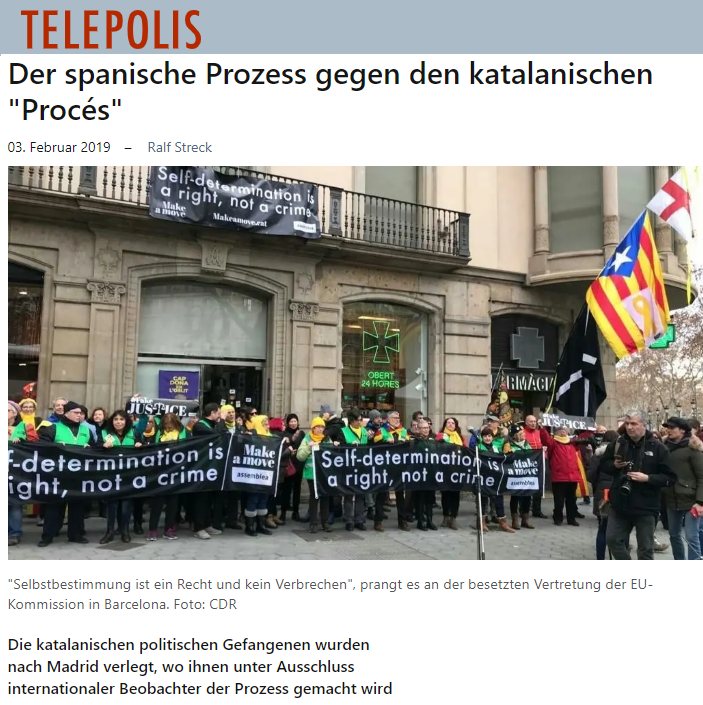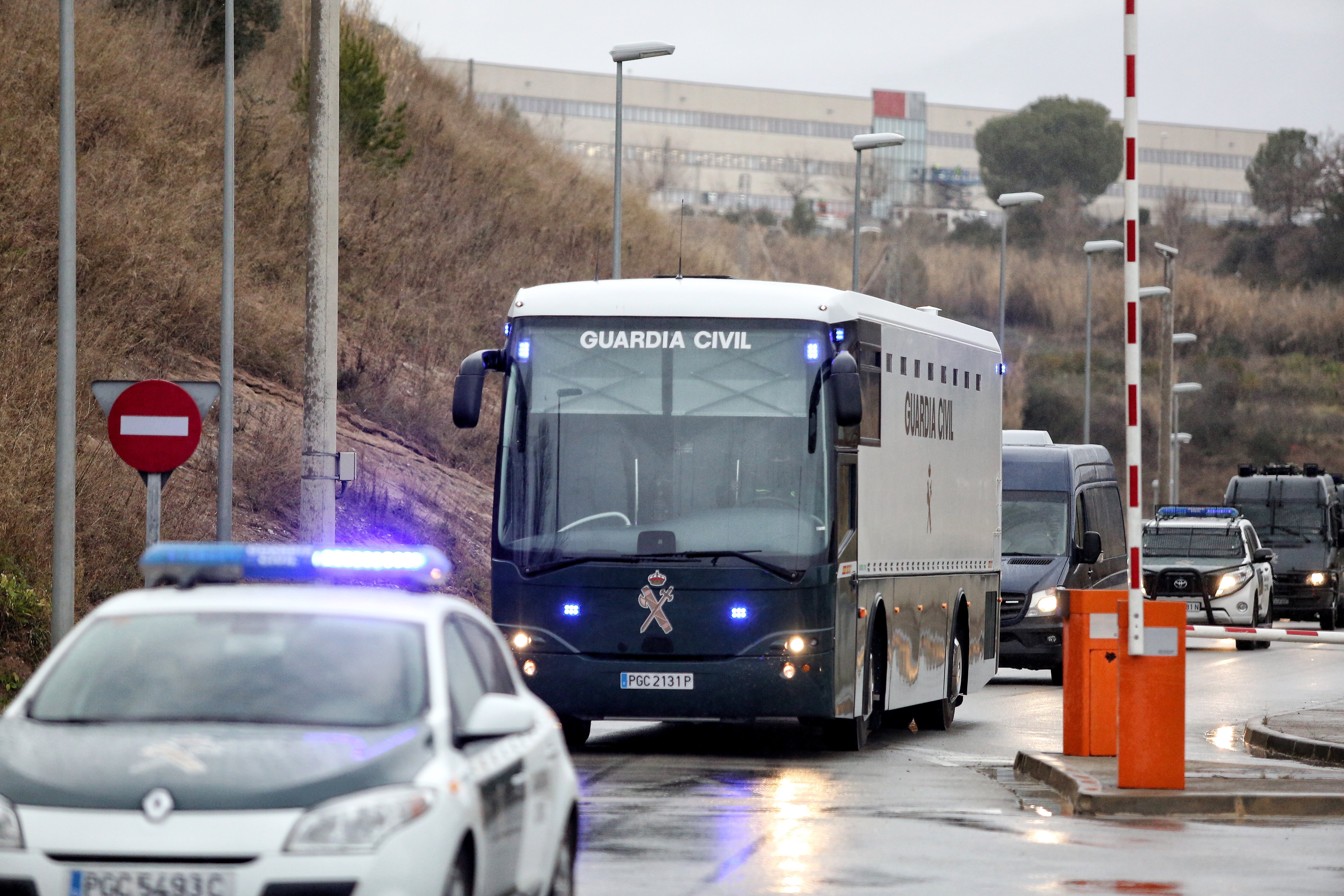German newspaper Telepolis has strongly criticised the transfer of the Catalan political prisoners to Madrid last Friday. In an article this Sunday, they described it as an "odyssey" and even "torture", as well as questioning the way the trial itself will be held.
"In no circumstances can anyone talk about 'VIP transport', as the Spanish radical right newspaper La Razón trilled today, only because a new bus was used. Being transported for seven hours in a tiny cell which is too small to be able to stand up in is torture," writes journalist Ralf Streck.

The coach which transported the pro-independence leaders to Madrid had 14 cells, each about the size of an airplane toilet. Each cell had a small window, but near the ceiling, so if the prisoners wanted to see outside they had to stand up and stretch. Rather than a window, it was a simple hole to let some light in. The prisoners couldn't see each other and were recorded and observed at all times by officers via screens set up in the drivers' area. They also had no possessions with them.
Este mal trato intolerable contra los presos políticos les acabará saliendo muy caro. Este clima de injusticia inquisitorial ya es completamente irrespirable. #Makeamove #ThisIsTheRealSpain #InquisitionToCat pic.twitter.com/qBlOVsIDCY
— Anthony Sànchez💛🎗️ (@acorey_cat) 2 de febrer de 2019
The trial under question
The German paper writes that Spain's "politicised justice system has invented a 'rebellion'". They continue: "Independent experts from international organisations state there was a "well-planned military-like operation" by Spain in which mass violence was used against voters. It's well-known that the German justice system didn't want to buy Spain's inventions, even after careful examination. They didn't see sufficient violence to extradite former president Carles Puigdemont to Spain for rebellion. And the justice systems in Belgium, Switzerland and Great Britain have the same view and aren't extraditing exiled Catalans to Spain."
The journalist quotes a constitutional law expert who says there is no "legal basis" for the "crazy criminal charges". Streck also notes that the court has refused to let international observers follow the trial from the court.
Deafening silence from Brussels
The article also talks of "disappointment" over Europe's behaviour towards the issue. "After all, the EU and its member states enjoy playing human rights advocates around the world, but are deafeningly silent over events in Spain".
Telepolis notes that self-determination is a basic right, directly quoting article one of the International Covenant on Economic, Social and Cultural Rights, which Spain has signed and ratified. "But Brussels maintains its complicit silence on events in Catalonia and prefers to play the defender of human rights in the rest of the world, instead of first worrying about getting its own house in order".

